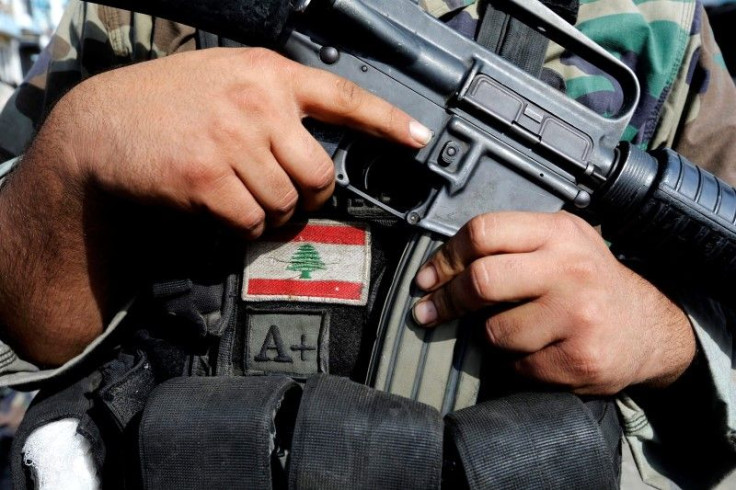French Weapons, Paid For By Saudi Arabia, To Arm Lebanese Military

France and Saudi Arabia signed a long-awaited deal on Tuesday to provide the Lebanese army with $3 billion worth of French weapons and military equipment, according to media reports. The ratification of the deal, which was initially announced last December, aims to boost the Lebanese military as it grapples with rising sectarian tensions in the country.
“This agreement, financed through Saudi aid, will contribute to strengthening the Lebanese army, guarantor of Lebanon's unity and stability,” Laurent Fabius, the French foreign minister, reportedly said, after the signing ceremony in the Saudi capital of Riyadh. “It will help it to carry out its mission to defend national territory and fight terrorism, at a time when Lebanon is under threat.”
The arms shipments, which are scheduled to begin within a month, reportedly include land, air and naval equipment, Agence France-Presse reported.
The Saudi aid comes at a time when Lebanon -- which has almost an equal number of Shias and Sunnis -- has been struggling to keep the peace within its borders. The country has witnessed sporadic incidents of sectarian violence since the beginning of the Syrian civil war in 2011, which created sharp divisions in Lebanese society. While the Sunnis support the Syrian rebels, including the al Qaeda affiliated Jabhat al-Nusra as well as the Islamic State group, the Shias support Syrian President Bashar Assad.
The fighting in Lebanon has reportedly intensified since August, when Sunni militants entered the town of Arsal near the Syrian border and kidnapped 20 Lebanese soldiers. More recently, fighting in the northern city of Tripoli last month killed 11 soldiers and at least 28 militants.
While the deal was announced almost a year ago, Saudi Arabia had reportedly held back its funds over fears that the weapons could fall into the hands of Hezbollah, a Lebanese Shia militant group -- believed to be funded by Iran -- that is openly hostile toward Sunnis. In recent months, Saudi Arabia has also expressed a willingness to combat the rising influence of the Sunni Islamic State group in the region, and joined a U.S.-led coalition to fight ISIS in Syria and Iraq.
The signing of the deal came amid a provocative speech by Hezbollah leader Hasan Nasrallah, in which he reportedly defended his organization’s role in the Syrian civil war. Hezbollah's decision to deploy thousands of its fighters to support Assad had not only angered many in the Arab world, including Saudi Arabia, but had also alienated the substantial Sunni population in Lebanon.
© Copyright IBTimes 2024. All rights reserved.












